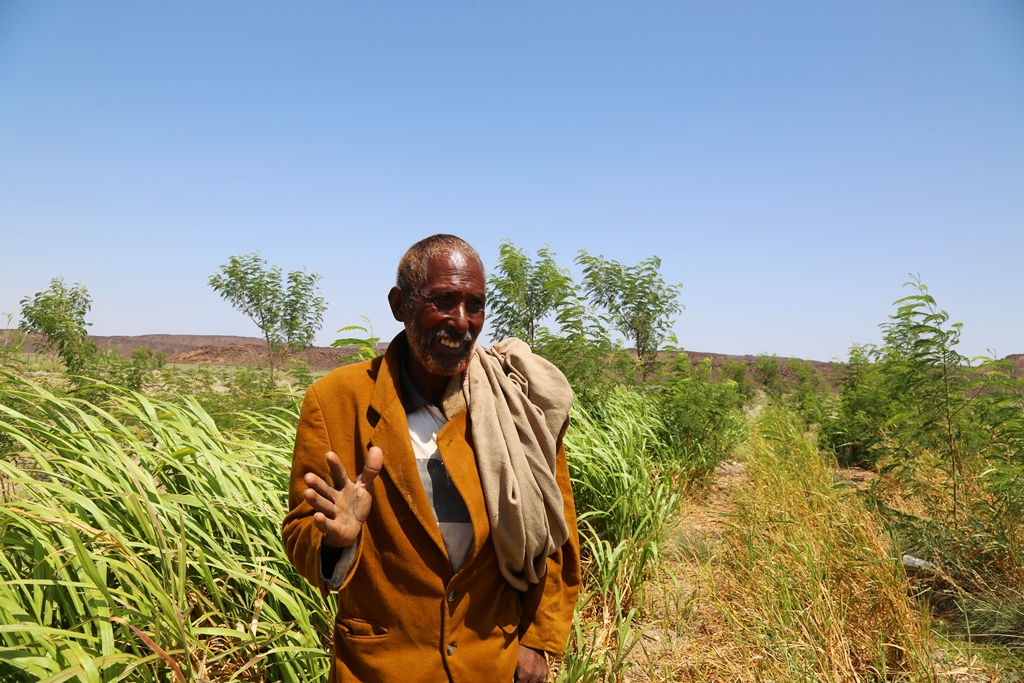Since 2007, the whole Horn of Africa region and Djibouti in particular have been facing a prolonged drought event that has heavily impacted agricultural production and rural livelihoods, especially animal husbandry, the backbone of the pastoralist way of life. Over the past years, rainfall, although traditionally very limited, has been 75% below average in Djibouti. A total of 206,000 vulnerable people have been identified in Djibouti as now being affected by drought and its impact. The adverse effects of drought and the increased vulnerability to climate change are high in all rural areas of Djibouti, but the two large, flat and semi-desertic plains of Petit Bara and Grand Bara, which are important crossroads for people traveling between the eastern and southwestern parts of the country, are particularly exposed to drought and require urgent adaptation interventions to secure water resources and conserve soil related ecosystems on which local communities depend. Food security and sustainability of livelihoods in the two plains rely heavily on the efficient use of water and the conservation of soil and vegetation. However, local water resources are becoming increasingly scarce as a result of the combined effect of reduced precipitation and overextraction of groundwater that has caused a dramatic drop in aquifer levels. Surrounding rural families frequently need to walk for many hours with their animals to reach a source of water.
Objectives: Djibouti’s Ministry of Environment and the United Nations Development Programme (UNDP) intend to help these communities develop resilience to projected worsening of drought conditions by helping communities develop and maintain shade gardens based on date palms to serve as the foundation for a diversified, climate-resilient agricultural and pastoral economy. The shade gardens will help to limit evaporation and create favourable microclimates for forage and vegetable growth, replicating the traditional practices imported by Yemeni populations in Djibouti centuries ago. They will also provide pastoral herders with alternative means of making their livings. The project will include a microfinancing scheme that will help households generate income and diversify the ways in which they earn money. Increased household savings and diversified income streams will help households weather climate-change induced droughts. At least six cooperatives, including women groups will facilitate the training of sustainable shade-gardening practices and the development of financial literacy within the rural population. Community-driven adaptation plans to prioritize the needs of agropastoralists aim to facilitate the use of microfinance products in future agro-pastoralist projects. The project is intended to incentivize people to to move away from risky and maladaptive activities and support them in escaping extreme poverty and avoiding the migration from their lands that may be necessary should climate conditions worsen.
Learn more
- Video: Adaptation Fund’s Djibouti Project in Action
- Project overviews on UNDP Djibouti and UNDP Climate Change Adaptation
| Project Component 1: Sustainable access to secured water resources in the face of climate change | USD 1,910,000 |
| Project Component 2: Shade gardens to support diversified and climate-resilient agro-pastoral production system | USD 1,498,000 |
| Project Component 3: Access to secured finance for climate resilient agro-pastoral enterprise development | USD 477,800 |
| Project/Programme Execution Cost | USD 407,800 |
| Total Project/Programme Cost (= Project Components + Execution Cost) | USD 4,293,600 |
| Implementing Fee | USD 364,956 |
| Grant Amount (= Total Project/Programme Costs + Implementing Fee) | USD 4,658,556 |
Project Documents
| Attachment | Type | Size |
|---|---|---|
| Project document | 3 MB | |
| Project concept | 778 KB | |
| PPR1 (for web) | XLS | 358 KB |
| PPR2 (for web) | XLS | 313 KB |
| PPR3 (for web) | XLSX | 139 KB |
| Mid-term evaluation report | 1 MB | |
| Final evaluation report | 592 KB | |
| Other project order | 3 MB |



